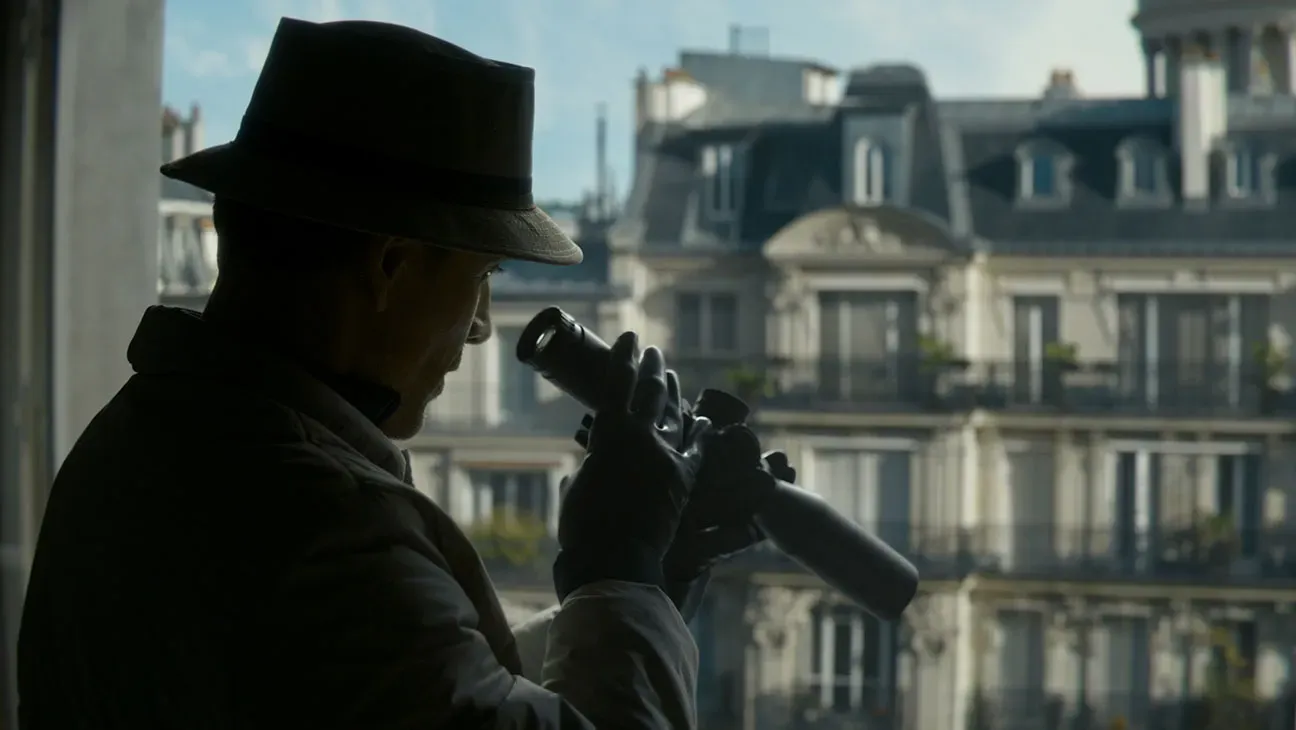David Fincher's ’The Killer’: Confessions of an Imperfectionist
With his stripped-down Netflix thriller, David Fincher exposes the folly of a perfect assassin.

“Stick to your plan. Anticipate, don’t improvise. Trust no one. Never yield an advantage. Fight only the battle you’re paid to fight. Forbid empathy. Empathy is weakness. Weakness is vulnerability. Each and every step of the way, ask yourself, ‘What’s in it for me?’ This is what it takes. What you must commit yourself to. If you want to succeed. Simple.”
Those are the words the eponymous character in David Fincher’s The Killer says to himself in the moments before he’s about the fuck something up—or, if not fuck something up, then defy some crucial phrase or two within this professional mantra. That little piece of narration occurs first in the moments before “The Killer,” played in a near-absolute deadpan by Michael Fassbender, finally reaches the point where he can squeeze the trigger on a contract job in Paris that he’s waited over five days to complete. That’s five days of meticulous planning and patience, of obscuring his identity as much as possible, of limiting his sleep, and, in these final pregnant moments before firing a bullet through the window of an apartment directly across the street, making sure his pulse has dropped under 60. He’s obviously the best at what he does, and we’ve seen enough movies about hired assassins to speculate that he’s the best-of-the-best among that lot, too. He then proceeds to shoot the wrong person, like some ordinary fuck-up.
It was hard to know what to make of The Killer two years ago, in part because it was produced and distributed by Netflix, which can feel like tossing a film into a crevasse, especially during fall “prestige” season, when so many directors are competing for attention. There was never any chance that an ice-cold, philosophically loaded revenge thriller would gain much traction among awards voters, and because it’s Netflix, there was only a minimal amount of theatrical life built into its release. Fincher would get his world premiere at Venice—alongside another Netflix title, Richard Linklater’s out-of-competition comedy Hit Man, a much bigger crowd-pleaser with overlapping themes—and a two-week window in a few big-city theaters before a quick arrival to the vast content purgatory of Netflix itself. Fincher’s biopic Mank is in there, too, along with other less-loved auteur items like Steven Soderbergh’s The Laundromat and Alejandro González Iñárritu’s Bardo, False Chronicle of a Handful of Truths.

At this time, The Killer has not been given the Criterion lifeline into canonization, either, so it feels like a nonentity, a “David Fincher” title you’re likely to pick if you want to boost your Cinematrix score. (One side benefit of that daily time-waster is that it serves as a rough data-check on how broadly a film is remembered.) Yet even though I reviewed it kindly at the time, The Killer has lingered in my mind as under-explored, both because it was caught in the glut of other seasonal attention-getters and because it’s so profoundly, narrowly, maddeningly Fincherian. That’s part of the Netflix deal, too, with major directors: If you’re looking to finance a personal project of obviously limited commercial appeal, then the devil’s bargain is there for you to accept.
Though classified as an action-thriller, The Killer now strikes me foremost as a drrrrrrryyyyy comedy, starting with that botched kill in Paris, which comes after an ocean of preamble from our anti-hero that laps up the first 20 minutes. Working with screenwriter Andrew Kevin Walker for the first time since their 1995 breakthrough Seven, Fincher kicks off a ream of voiceover narration with a line that could just as well set the table for a slacker comedy: “It’s amazing how physically exhausting it can be to do nothing.” The sheer volume of voiceover in The Killer brings the film closer to Fincher’s Fight Club, and in both cases, the narrator seems motivated by boredom and alienation, as if he needs to articulate his own thoughts to keep himself engaged and justify actions that are dramatically outside the norm. Even if we weren’t his invisible audience, it feels like he’d still be talking to himself.
This post is for paying members only
Sign up now to read the post and get access to the full library of posts for subscribers only.
✦ Sign up